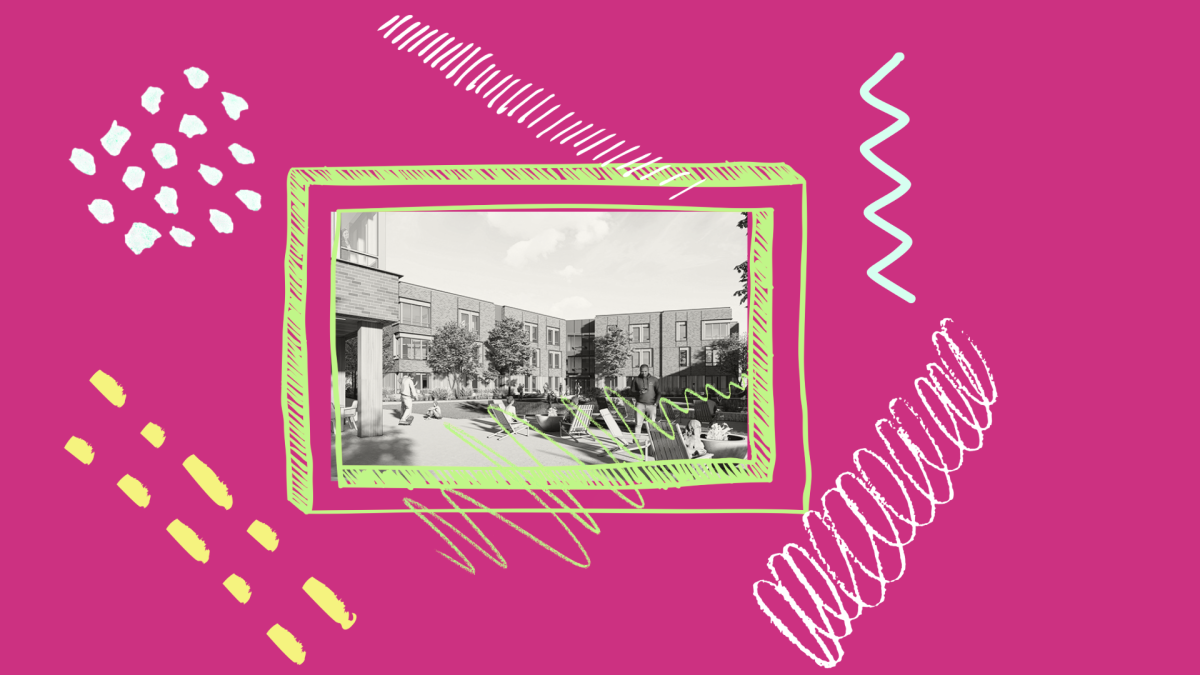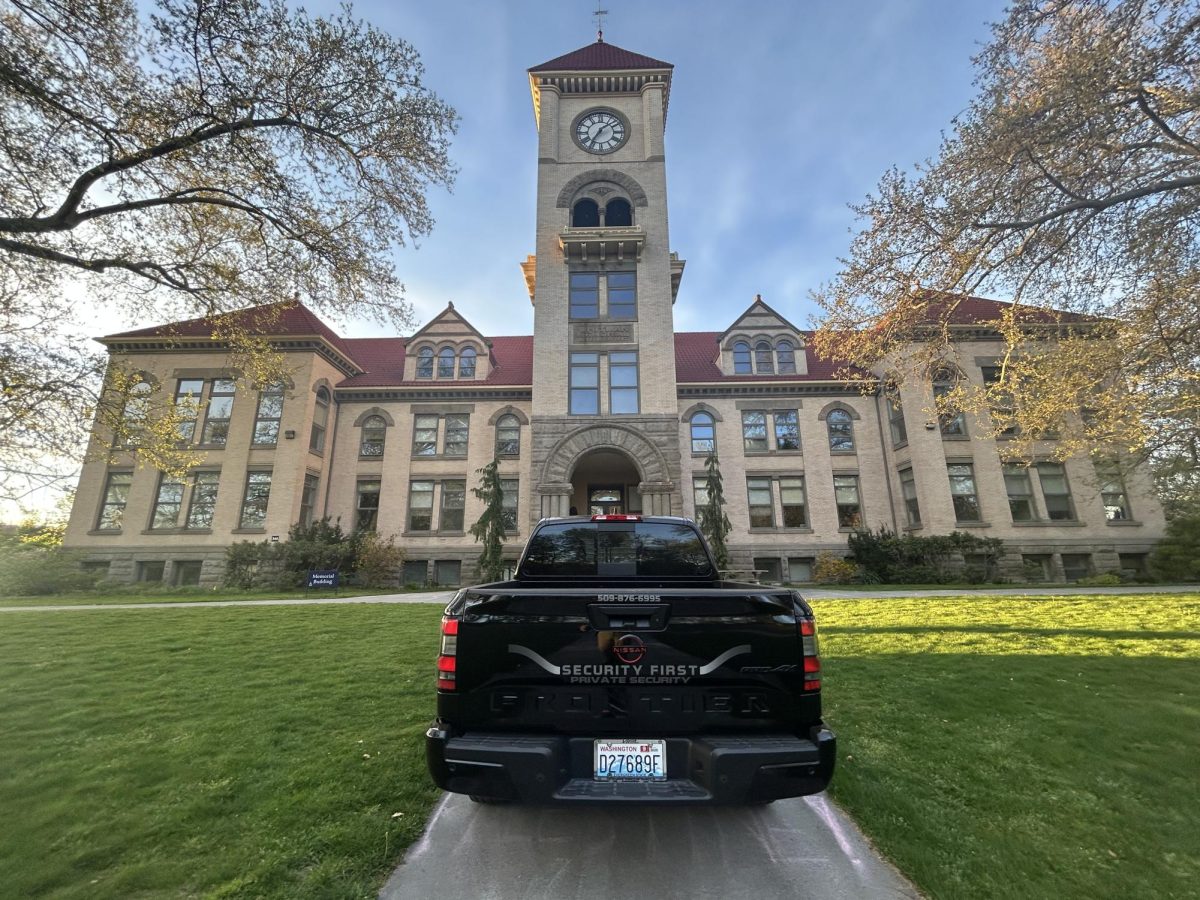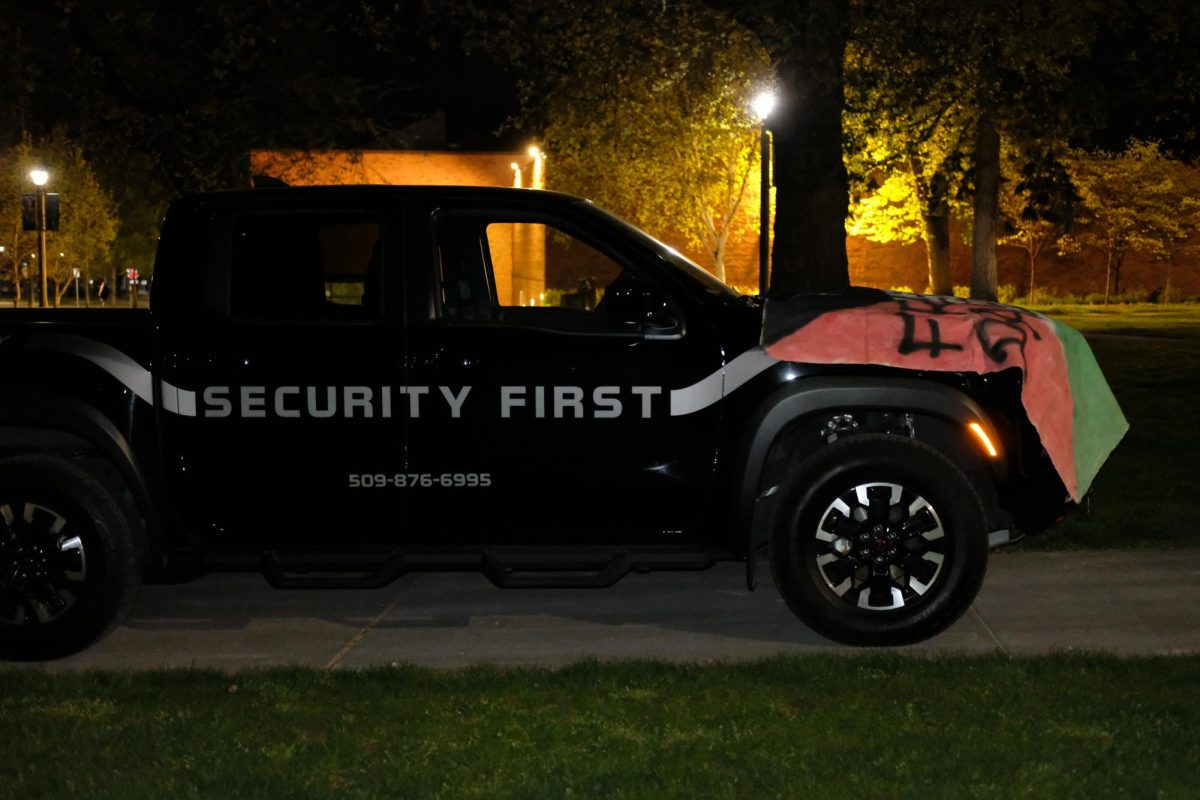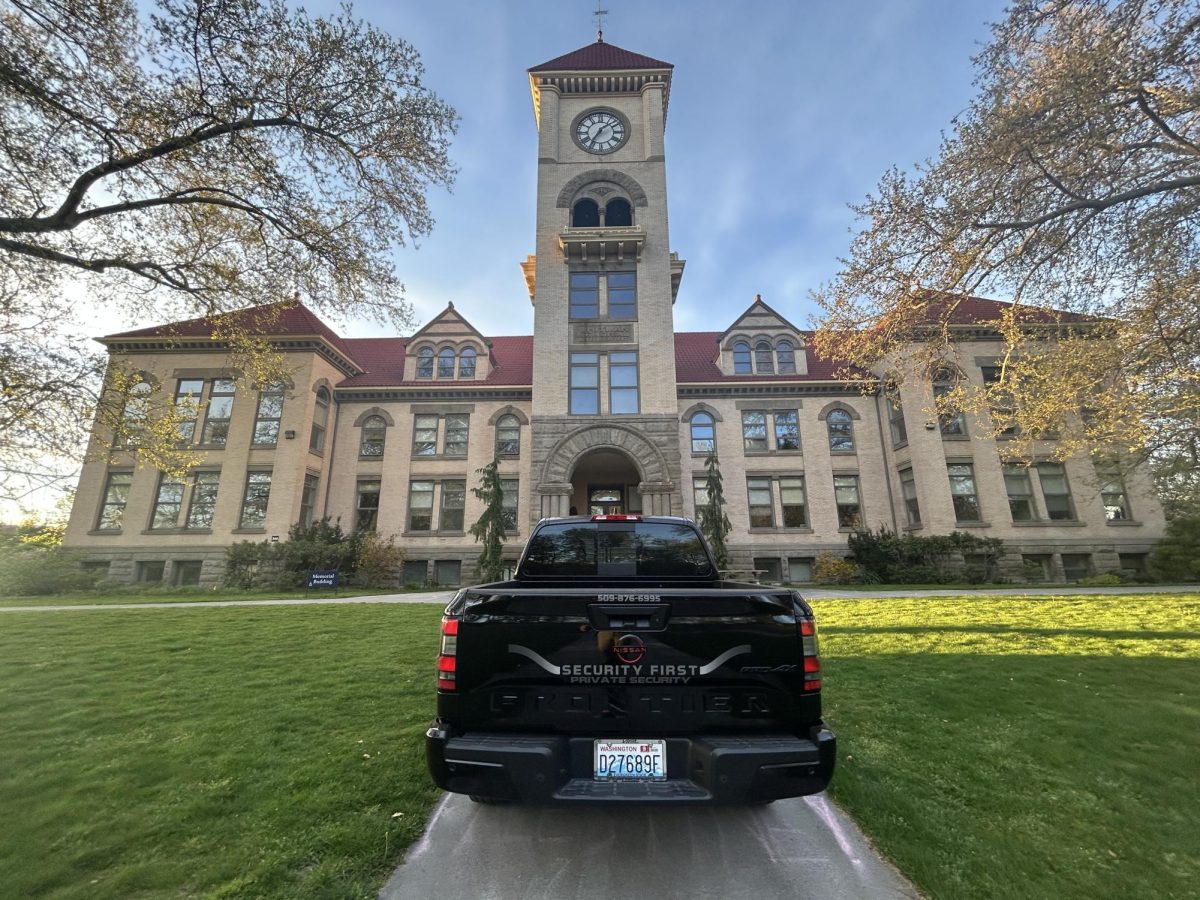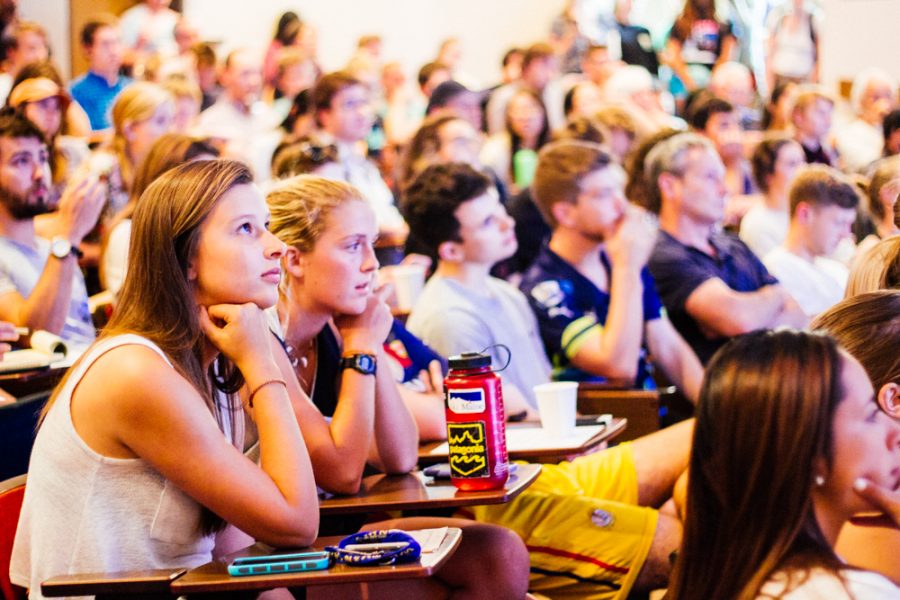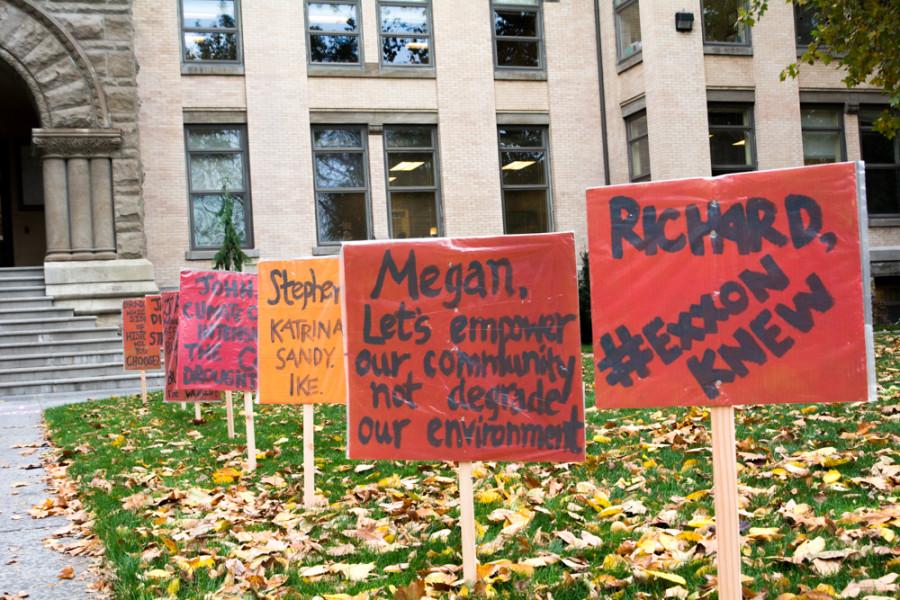Tuesday evening, students flocked to Maxey Hall to see President Barack Obama and his opponent, Mitt Romney, face off in their second debate of this election. Unlike their last encounter, Romney and Obama did not compete from behind the podium; instead, they stood surrounded by a small audience of common American voters. These voters, voicing concerns of their peers around the nation, addressed each candidate face-to-face, but did not always get a direct response.
Many Whitman students hoped to see the candidates address issues more specifically, with more poise and maturity than they did last time. As the debate wore on, however, both candidates failed to restrain themselves from interrupting one another, even neglecting to immediately respond to questions posed by moderator Candy Crowley in order to continue arguments over previous prompts.
First-year Collin Ogilvie: “The moderator failed to control the aggression of the candidates and completely disregarded the agreed-upon debate format predetermined by both parties.”
Sophomore Alexandra Calloway-Nation: “Two-thirds of the debate was spent by Romney answering questions asked by the moderator and audience members. The rest of the time Obama attacked Romney; only at the end of the debate did he start answering the questions.”
Junior John Masala: “They cut each other off a lot. Some of the parts I liked best were when they restrained themselves and actually listened to the moderator––that made me respect them more.”
Sophomore Yonah Biers-Ariel: “I thought it was more evenly matched than the last one. Obama wasn’t very fluent, but I think he had a lot of good things to say; Romney made a bunch of personal attacks.”
Senior Spencer May: “Michael Jones, about an hour into the debate, had the opportunity to ask Obama a question. His voice was quiet, his question sincere: ‘Mr. President, I voted for you in 2008. What have you done or accomplished to earn my vote in 2012?’ For a moment, I thought Obama would pause, look at Michael in the eye––composed and reassuring––and explain that Michael’s livelihood and future are what moved him to become President and make the decisions that he made during the last four years.
“But I guess debates don’t work that way––I had hoped for a refreshing moment of personal connection and honesty, and instead I watched a barrage of targeted attacks and misleading descriptions of each candidate’s achievements. I guess I’m nostalgic for Obama’s powerful vision and his thoughtful introspection, and was disappointed by the immature fighting that American elections often are.”



